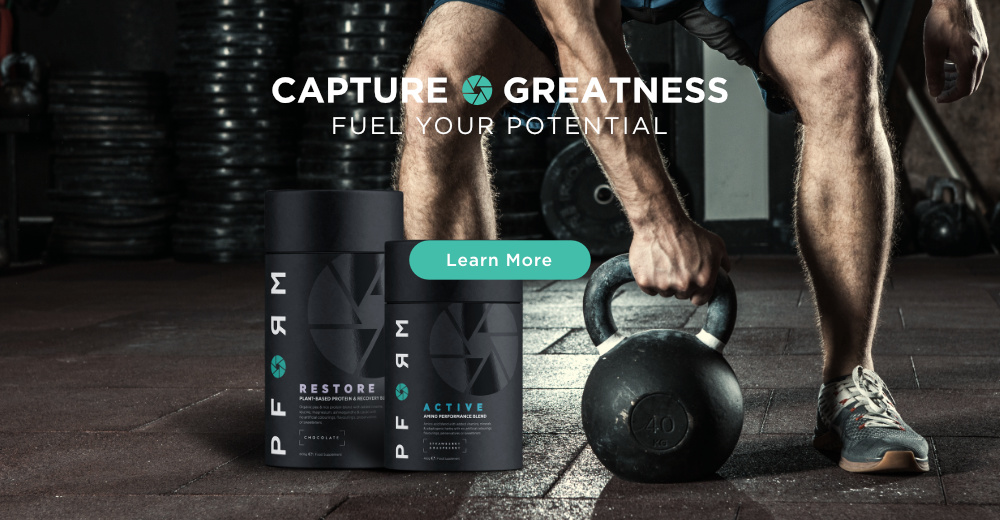
Pros of the ketogenic diet
This article summarises some of the health benefits associated with the ketogenic diet and being in a state of nutritional ketosis.
These health benefits are understood to come about from your body adapting to being in nutritional ketosis, as well as certain properties associated with ketone bodies. Check out Introduction to the ketogenic diet to understand what nutritional ketosis is and what ketone bodies are and find out more!
Lose weight & fat
Following the ketogenic diet results in a considerable reduction in carbohydrate intake and therefore you may inadvertently reduce energy intake which may result in weight loss (1). Anecdotal evidence and scientific studies indicate the ketogenic diet to increase levels of fullness (satiety) and suppress appetite despite weight loss (2). This latter point is particularly important, since following weight loss, hunger hormones increase and this tends to result in people regaining the weight that they’ve dieted so hard to lose! However, the ketogenic diet is indicated to suppress hunger following weight loss (3) which may be beneficial for long-term weight maintenance. Studies also show that because carb intake reduces and insulin levels drop on the ketogenic diet, you are able to specifically lose fat rather than just overall weight (4). Again this is important because increased health is associated with reduced excess fat but maintenance/development of lean body mass.
Tip: regardless of the diet, a calorie deficit remains necessary for weight loss. Also, designing a diet that is suited to your preferences, needs and goals will result in optimal results since you will be able to follow it, and want to follow it. Get in touch with what you think would be ideal for you.
Metabolic flexibility
Is a term banded around a lot! It describes the capacity to readily switch between accessing and burning both fat and carbohydrate. It’s important because metabolic inflexibility is associated with chronic diseases such as obesity and type 2 diabetes (5) and therefore being metabolically flexible is associated with optimal health. Additionally, the more metabolically flexible you are, the easier it is for you to access and burn fat and therefore lose fat. As your body becomes used to accessing and metabolising fat, it upregulates certain metabolic processes and builds the machinery to facilitate this process becoming more efficient and effective. The way in which the ketogenic diet assists you to become metabolically flexible is through you being in a state of nutritional ketosis: your body therefore has to be able to access fat stores in order to create ketone bodies and so subsequently your body becomes equipped to effectively utilise fat in addition to carbohydrate. Check out Introduction to the ketogenic diet and Keto adapted versus fat adapted for more info.
Tip: assess how metabolically flexible you currently are – if you’re not at all, it may be beneficial to go low carb/keto for a period of time first. However, if you are already normal/healthy weight/exercise/eat a largely whole foods diet, you are likely already relatively metabolically flexible and therefore it may benefit you to cycle in whole food sources of carbs into your diet, keeping your body accustomed to utilising carbs.
Improved insulin sensitivity
A ketogenic diet may improve insulin sensitivity for a variety of reasons. Firstly, weight loss and calorie restriction is associated with improved insulin sensitivity, which is often associated with the ketogenic diet (4). Also, diets low in carbohydrate, such as the ketogenic diet are shown to be particularly effective in improving insulin sensitivity, likely because of the significant reduction in insulin requirements. There are studies on normal weight/healthy/obese/type 2 diabetic subjects showing the ketogenic diet to result in a reduction in fasting insulin levels (4,7,8). As well as the ketogenic diet lowering insulin levels, ketone bodies themselves may have specific properties, which may positively impact blood glucose levels and insulin sensitivity (9). Long-term studies show that insulin sensitivity is improved in patients with type 2 diabetes on the ketogenic diet (8).
Tip: exercise is king for improving insulin sensitivity. Whether it’s high intensity intervals, a jog/walk in the park, yoga or a dance, focus on a daily activity that works for you and that you enjoy. If you don’t yet know what physical activity is your thing, give some different classes/sports a go and keep testing until you find something you like. In the meantime, you’ll be increasing your fitness and improving your insulin sensitivity… ☺
Manage inflammatory balance
The body’s inflammatory response is critical to remaining healthy and aid prevention of diseases: the inflammatory response is the body trying to fight off some kind of irritant. It’s therefore critical to have this response intact, however, we don’t want this response to work over time. Ketone bodies (specifically BHB – you can check out Introduction to the ketogenic diet to learn more) have been shown to improve this overall inflammatory balance (10). Ketone bodies have also been shown to affect and increase the production of other substances which help your body to stay healthy, called antioxidant defence substances (11).
Tip: construct and follow a well-formulated diet and include a variety of non-starchy vegetables. Choose monounsaturated fats (avocados, olives) and be aware of getting in enough of your omega-3 fats (fish is your best bet, like salmon, mackerel, sardines and then also your flaxseed, chia seeds and walnuts).
Brain health
The ketogenic diet is now an established treatment for epilepsy (12) and a growing amount of research indicates that it may be beneficial for neurodegenerative diseases such as Alzheimer’s and Parkinson’s disease, as well as the aging process (13). Neurodegenerative diseases and the aging process are associated with: reduced energy efficiency in the brain, dysfunctional energy production (mitochondrial dysfunction) and premature death of brain cells (neurons).
Ketone bodies may be beneficial for the brain by: being a more efficient fuel source (14), improving the health of the power house of the cell (mitochondria) (15), preventing neuro-inflammation (10) and balancing levels of brain chemicals (neurotransmitters) (16).
Tip: build in a simple daily habit to cultivate your own calm. Start small, what about 5 minutes a day of meditation? Check out one of the meditation apps and follow a guided practise. Other ideas, deep breathing, connecting with nature and taking some time for you…
Final words
- Check out Cons of the ketogenic diet to understand potential drawbacks of going keto and optimise your success on it.
- Focus on the quality of your diet: eat real and whole food sources, rich in micronutrients and keep it simple. For instance, opt for whole food snacks of nuts, raw crudités, avocados, eggs.
- Personalisation is key: think of the ketogenic diet as a template and then adapt it where you can to suit you and your needs, goals and preferences best.
Related articles
- Introduction to the ketogenic diet
- Cons of the ketogenic diet
- Keto adapted versus fat adapted
- The benefits of the ketogenic diet for the athlete
References
- Vargas-Molina et al. (2020). ‘Effects of a ketogenic diet on body composition and strength in trained women.’
- Sumithran et al. (2013). ‘Ketosis and appetite-mediating nutrients and hormones after weight loss.’
- McKenzie et al. (2017). ‘A novel intervention including individualised nutritional recommendations reduces haemoglobin A1c level, medication use, and weight in type 2 diabetes.’
- Volek et al. (2002). ‘Body composition and hormonal responses to a carbohydrate-restricted diet.’
- Goodpaster and Sarks (2017). ‘Metabolic flexibility in health and disease.’
- Bueno et al. (2013). ‘Very-low-carbohydrate ketogenic diet v. low-fat diet for long-term weight loss: a meta-analysis of randomised controlled trials.’
- Noakes et al. (2006). ‘Comparison of isocaloric very low carbohydrate/low saturated fat diets on body composition and cardiovascular risk.’
- Athinarayanan et al. (2019). ‘Long-term effects of a novel continuous remote care intervention including nutritional ketosis for the management of type 2 diabetes: a 2-year non-randomised clinical trial.’
- Newman and Verdin (2014). ‘Ketone bodies as signalling metabolites.’
- Youm et al. (2015). ‘Ketone body β-hydroxybutyrate blocks the NLRP3 inflammasome-mediated inflammatory disease.’
- Shimazu et al. (2013). ‘Suppression of oxidative stress by β-hydroxybutyrate, an endogenous histone deacetylase inhibitor.’
- Neal et al. (2014). ‘The ketogenic diet for the treatment of childhood epilepsy: a randomised controlled trial.’
- Henderson et al. (2009). ‘Study of the ketogenic agent AC-1202 in mild to moderate Alzheimer’s disease: a randomised, double-blind, placebo-controlled, muilticenter trial.’
- Kashiwaya et al. (1994). ‘Control of glucose utilisation in working perfused rat heart’
- Bough et al. (2006). ‘Mitochondrial biogenesis in the anticonvulsant mechanism of the ketogenic diet’.
- McNally and Hartman (2012). ‘Ketone bodies in epilepsy’.

















